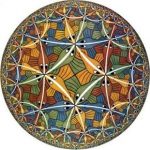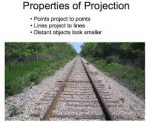My attention was just recently brought to the work of philosopher and poet Emily Grosholz. It’s rare to find an individual so steeped in the ways of poetry and mathematics, and the desire to explore how and what they express about us. What I would like to consider here, in this particular post, is really […]
|
|||||
|
I have been particularly concentrated on whether mathematics can tell us something about the nature of thought, something that we have not yet understood about what thought is made from, how it happens, how it is connected to everything else in the universe. These questions inevitably point me in the direction of research in cognitive […] I’ve written before about how probabilities are used to understand human perception, understanding, and learning. Joshua Tenenbaum uses probabilistic inferencing to account for how we come to learn concepts, acquire language, and understand the world around us quickly, and with very little information (How to Grow a Mind). Optical illusions are created by statistical judgments […] I find the relationship between mathematics and vision fascinating. Even within mathematics itself, seeing how the geometric expression of ideas can clarify or further develop countless mathematical thoughts is always worth noting – like the graphs of functions, or the projections of figures. I’ve written before about the relationship between the brain’s visual processes and […] 
Recently I became particularly sensitive to discussions that address ‘meaning’ as an emergent property of both biological and formal systems (of which mathematics is one). And this is because it is the meaning of symbols in mathematics that is the source of its power. But it is not at all clear that the meaning of […] I read about the sad passing of Maryam Mirzakhani in July, and the extraordinary trajectory of her career in mathematics. But I did not know much about what she was actually doing. A recent post in Quanta Magazine, with the title: Why Mathematicians Like to Classify Things, caught my attention because the title suggested that […] 
Deciphering the principles of self-organizing systems is often at the heart of new ideas in biology, including neurobiology. A complex, self-organizing system contains a large number of elements that have predictable, local interactions with each other, but these local interactions create global properties that cannot be predicted from even the most well-understood local events. This […] I have made the argument on more than one occasion that a refreshed look at mathematics may help illuminate the relationship between our experience of the physical and our experience of the thoughtful. Mathematics is a discipline characterized by complex relations among abstract things but, as has been explored from many directions, the action of […] Familiar mathematical structure is found in the neural activity that governs how the body orients itself and navigates its environment. Grid cells are neurons, found in areas neighboring the hippocampus, whose individual firings line up in a coordinate-like pattern according to an animal’s movement across the full extent of its environment. Their grid pattern acts […] I like finding what I believe are productive generalizations, or some sameness across apparently diverse events. Often the subject of Mathematics Rising are things like the observation that we seem to search for words in patterns that resemble the trajectories of a rat foraging for food, or the possibility that natural language can be described […] |
|||||
|
Copyright © 2024 Mathematics Rising - All Rights Reserved Powered by WordPress & Atahualpa |
|||||


Recent Comments